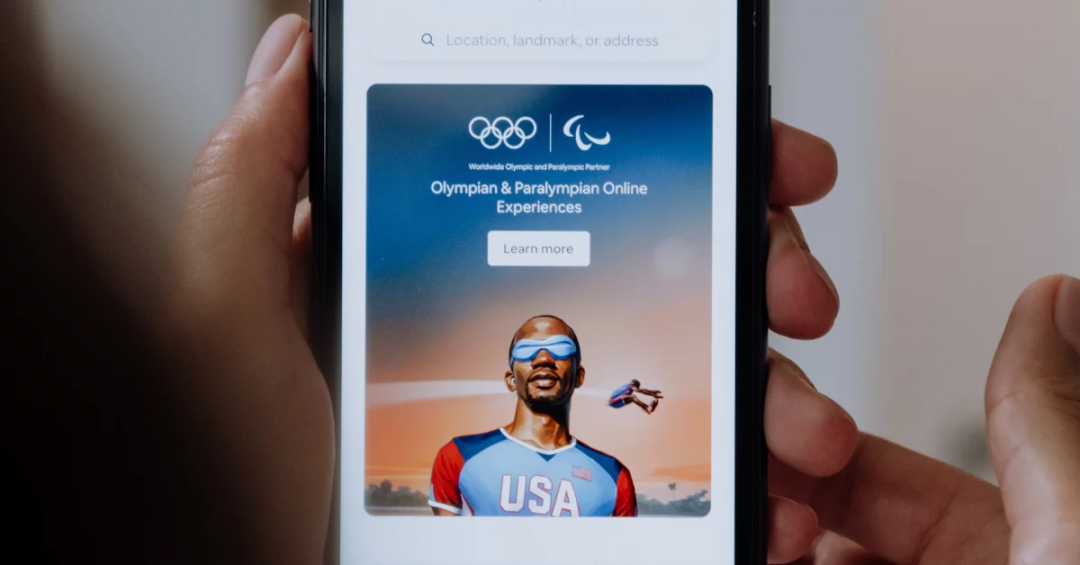Migu, Douyin, Kuaishou, and Tencent's Battle for Olympic Traffic
![]() 07/18 2024
07/18 2024
![]() 496
496


The war for sports traffic extends beyond the boundaries of sporting events.
@TechInsights Original
The essence of sports is the war in times of peace, a competition of comprehensive strength between nations, a race for global brands to capture eyeballs, and a division of the entire traffic pie among various internet platforms.
Starting from the Tokyo Olympics in 2021, the Beijing Winter Olympics in 2022, the Qatar World Cup in 2023, and the Hangzhou Asian Games in 2023, these events seamlessly educated domestic brands and virtual platforms on sports marketing, bringing about a shockwave of sports traffic.
According to official data from China Media Group, after the opening of the Tokyo Olympics in 2021, CCTV5, as the main Olympic broadcast channel, saw its audience share rise steadily, with a 20% increase compared to the average of the Rio Olympics in 2016 during the same period. The short video platform Kuaishou also seized the opportunity that year, acquiring video-on-demand and short video content rights, outpacing Douyin's secondary content creation.
As early as three months ago, when the countdown to the 100 days before the Paris Olympics in 2024 began, brands and platforms had already started their promotional campaigns. Related hashtags trended on social media platforms like Weibo and Xiaohongshu, while Chery and Yili respectively kicked off their Olympic marketing efforts by signing athletes and sponsoring delegations.
The battle for content platform rights kicked off in the middle of last month, when China Media Group finally announced the distributors of its Olympic broadcasting rights. Migu Video, Douyin, and Kuaishou became the authorized broadcasters for long-form and short-form video platforms, respectively. Subsequently, Tencent separately announced its intention to cooperate with China Media Group, allowing users to watch on-demand, short video content, and original programs through its platforms such as Tencent Video, Tencent Sports, WeChat, Tencent News, Tencent.com, QQ, QQ Browser, and Weishi.
As a long-form video platform under China Mobile, Migu's distribution rights remain at the highest level, including live broadcasts, delayed broadcasts, and on-demand replays. This means that, just like during the Tokyo Olympics, the only legal channels for watching live broadcasts on mobile internet platforms are CCTV's CCTV Video APP and Migu Video APP.
The highest level of distribution rights comes with hefty licensing fees. While nearly monopolistic live broadcast channels can indeed bring exclusive traffic during events, even generating secondary dissemination on other platforms and communities, which then flows back to Migu's platform, given Migu's years-long image as a professional sports event video platform, true sports enthusiasts are already familiar with it, and most users attracted by national sentiment or athlete fans during the Olympics will quickly lose interest after the event ends.
Judging from the official announcements, Douyin, Kuaishou, and Tencent have paid for the same level of distribution rights, covering event on-demand and short video content, as well as related original programs. Tencent's cooperation intention, in the form of a bundled group business, clearly leaves short video content to WeChat's video account and places original programs on Tencent Video, the long-form video platform with content production capabilities.
Kuaishou stole the limelight during the Tokyo Olympics, with a total of 73 billion views for related works and trending videos, driving a 63.2% year-on-year increase in the number of overall consumers for e-commerce business on its platform and an 88% year-on-year increase in GMV. The sweetness of sports traffic naturally attracted Douyin, which has a wider monthly active user base than Kuaishou. Compared to the previous Olympics, when it could only follow Bilibili and Kuaishou in creating secondary content, Douyin is determined to recoup what it missed at any cost.
Paying real money for rights is just the beginning. How to leverage these rights with the unique features of their respective platforms to sell more expensive sponsorship rights is only the first step these content platforms take to offset the high licensing fees. On the other hand, they must also be vigilant against platforms like Weibo, Bilibili, Xiaohongshu, and Zhihu, which do not have rights but rely on a strong topic atmosphere to share in the Olympic pie.

Since the Beijing Olympics in 2008, the failure of Olympic economics has gradually become apparent, even becoming a tangible burden for the host country. It was also from that era of the heyday of the four major portals—Tencent, Netease, Sohu, and Sina—that the online economic benefits of the Olympics continued to bring shockwaves.
A survey by AC Nielsen at the time found that the four major portals accounted for 80% of online traffic related to Beijing Olympic coverage, and their advertising revenue in the second quarter of that year all reached record highs, with total revenue in the third quarter exceeding US$1 billion for the first time.
After the baptisms of London, Rio de Janeiro, and Tokyo, the Paris Olympics bids farewell to the glory of the long-form video era and embraces short-form videos. For Douyin, Kuaishou, and video accounts, which have just taken center stage, it's not just a simple matter of buying rights and attracting sponsors. They must also focus on the long-tail effects of celebrity athlete inroads, brand GMV conversions, and the battle for user mindshare in terms of content tone.








